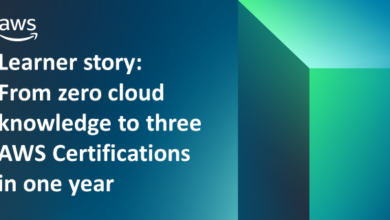Top 10 cloud computing careers of 2024 and how to get started

Cloud computing provides an environment where an organization doesn’t need to run its own hardware. Instead, it benefits from elastic, on-demand compute and storage capacity billed on a consumption basis. It enables users and businesses to access digital information over the internet from anywhere, rather than needing physical servers in a back-office network closet. Cloud computing offers businesses reduced IT overhead costs, which is especially important for small businesses and startups with insufficient capital to invest in an extensive on-premises IT department.
Many aspects of modern life involve interacting with cloud technology, whether as a consumer or an IT professional. On the consumer side, a reduction of physical media, such as CDs, DVDs and video games, led to the rise of on-demand streaming services. This requires remote storage options that can support large amounts of data to be delivered accurately and immediately. IT professionals, meanwhile, have watched as the remarkable advancements in AI, machine learning (ML) and IoT drive their companies to seek the agility and flexibility of the cloud.
Moreover, cloud computing is a rapidly growing IT field in need of skilled professionals. In November 2023, Gartner published a forecast estimating that global end-user spending on public cloud services in 2024 will reach $679 billion, up from $564 billion in 2023. IaaS is expected to grow the most, with a spending increasing of 26.6% in 2024, while PaaS should grow by 21.5%.
In February 2022, Grand View Research published a study of emerging trends in the cloud computing space that estimated $1.6 trillion in revenue generated across the entire cloud sector by 2030. More than half of the market will consist of banking, financial services and insurance; IT and telecom services; and retail and consumer goods.
Such a complex and expanding system requires detailed knowledge and skills, which, in turn, call for specific training and requirements.
Cloud computing career requirements
Regardless of your career stage, the skill set required for cloud computing jobs is the same. You’ll need a solid foundation in the following:
- Programming languages. Specific languages include Java, JavaScript, Go, Rust and Python.
- Database management and programming. Those familiar with SQL, NoSQL and Linux have the advantage.
- AI and ML. These two technologies aid businesses’ agility and efficiency by processing and analyzing patterns, making insights based on that data, and facilitating faster, more accurate decision-making.
- Understanding and experience with cloud technologies and providers. Some of these vendors include AWS, Google, Microsoft and Oracle.
As with any IT specialty, you also need to be curious, analytical and willing to stay on top of rapidly changing user needs that drive technological innovation.
Top cloud computing careers
Although companies might vary in their job descriptions for particular cloud computing roles and their specific requirements, the information here applies broadly throughout the U.S.
You can find the salaries below, along with other cloud computing careers, at Salary.com and Glassdoor.
1. Cloud administrator
These experts manage a company’s cloud presence and infrastructure. They develop, enforce and update policies for how employees and users access cloud services; establish security protocols and policies; monitor and ensure uptime; and assess the need for technology updates.
Education requirements: Bachelor’s degree in computer science, management information systems or a related field, plus three to five years in systems or IT administration.
Salary range: $68,051 to $84,571.
Average salary: $75,795.
2. Cloud support engineer
Where there’s technology, problems inevitably arise. Cloud support engineers are troubleshooting experts who assist customers, typically B2B clients and not the ultimate end user. In addition to providing on-demand assistance, cloud support engineers are often responsible for writing user and training manuals, tutorials, FAQs and help guides. They should have excellent communication skills and prior experience in tech support and debugging.
Education requirements: Bachelor’s degree or higher in computer engineering, computer science or another IT field.
Salary range: $77,000 to $116,000.
Average salary: $87,974.
3. Cloud security analyst
Cloud security analysts have the responsibility of ensuring the integrity and security of a company’s cloud presence. They do this by assessing threats and shoring up defenses against them, preventing data breaches, securing data and eliminating security gaps if a breach occurs.
Education requirements: Bachelor’s degree in cybersecurity, systems analysis, computer science or IT with a specialization in security analysis.
Salary range: $93,000 to $147,000.
Average salary: $98,228.
4. Cloud network engineer
In this role, IT professionals design and maintain an organization’s cloud services across a network in a certain division or even for an entire company. Cloud network engineers’ duties might overlap with cloud architects and engineers in that they are sometimes called upon to identify new cloud providers, assess business needs and make recommendations for cloud-based platforms.
Education requirements: Bachelor’s degree or higher in software engineering or computer science, preferably with a focus in server infrastructure, network management or security.
Salary range: $83,846 to $102,123.
Average salary: $91,984.
5. Cloud software engineer
Cloud software engineers work with programmers and related computer scientists to develop software that operates in the cloud, often as SaaS or IaaS systems. These individuals are usually also responsible for upgrading, repairing and maintaining the software they develop and the databases it powers.
Education requirements: Bachelor’s degree or higher in software engineering, computer science, information systems or a related field, plus experience with programming languages such as Java and Python.
Salary range: $131,000 to $195,000.
Average salary: $131,237.
6. Cloud automation engineer
As the world becomes increasingly automated, cloud automation engineers are necessary to build, implement and maintain this automation technology as it migrates to the cloud. This automation frees human workers from repetitive tasks.
Education requirements: Bachelor’s degree in computer science or IT, with specialization in AI and/or ML.
Salary range: $90,000 to $132,000.
Average salary: $101,415.
7. Cloud engineer
Cloud engineers are responsible for the managerial aspects of a company’s cloud strategies. Engineers often work alongside architects to ensure a company’s cloud strategies are implemented, but they also do the administrative work of negotiating with clients and vendors to keep everyone on task and within budget.
Education requirements: Bachelor’s degree or higher in computer science, information systems or a related field, plus experience with programming languages such as Java and Python.
Salary range: $125,498 to $147,958.
Average salary: $136,475.
8. Cloud consultant
Cloud consultants have broad knowledge of cloud technologies and provide guidance to companies looking for cloud-based tools. Typically, these experts assess a company’s needs and suggest software and devices to best meet its technical and budgetary requirements. Consultants might also help transition to the cloud by designing migration policies and selecting appropriate platforms. Consultants might sometimes be asked to help customize a company’s cloud presence, so they should have both general and in-depth knowledge of the major cloud platforms.
Education requirements: Bachelor’s degree in computer science or IT, and because this position often requires managerial skills, a Master of Business Administration might lead to additional clients.
Salary range: $87,000 to $135,000.
Average salary: $98,900.
9. Cloud data scientist
Data scientists already analyze tremendous amounts of data. With the rapid expansion of big data and data generated by IoT applications, these professionals will be in even higher demand. Cloud data scientists develop logical management and organization systems for otherwise unwieldy amounts of data in cloud infrastructure environments. As organizations complete their digital transformation from physical to cloud-based servers, they’ll need skilled cloud data scientists to assess and organize that data in a way that is sensible and usable. Note when searching for jobs that this position is also sometimes referred to as a cloud data engineer.
Education requirements: Bachelor’s degree or higher in data science, computer science or a related field, and a double major or coursework in statistics is also helpful.
Salary range: $119,000 to $176,000.
Average salary: $119,584.
10. Cloud architect
Think of cloud architecture as the framework within which all other cloud technologies operate. It’s the frame of the house, and all the cloud-specific subspecialties are like flooring, plumbing and drywall. Cloud architects, similar to general contractors, are the ones who design and implement a company’s cloud computing strategies. They ensure everything stays on track and on budget and that the company’s transition to cloud operations goes smoothly.
Education requirements: Bachelor’s degree or higher in computer science, information systems or a related field, and some companies require or give preference to those holding a Master of Business Administration or other master’s degree.
Salary range: $127,800 to $158,202.
Average salary: $143,665.
Tips to jump-start a cloud computing career
Now that you know about the available roles in cloud computing, it’s time to pursue a career where you can put those skills into practice. Here are some tips to help you along the way.
1. Earn a computer science or IT degree
First, it’s important to understand that many companies don’t require higher education. If you prove you understand and fulfill the job requirements, you stand a good chance of being hired for an entry-level position and starting on your cloud environment career path. However, if you have no prior IT experience, a formal program can provide you with a solid foundation upon which you can add skills and specialized knowledge. Being able to list a degree on your resume also shows employers that you understand the fundamentals and can commit to long-term projects.
2. Get additional training related to cloud computing
If a college degree isn’t right for you or if you already work in IT and want to shift into a cloud-focused career, there are countless options online for continuing education and training, including individual classes and multipart certification courses. In addition to teaching you the in-depth topics you must know as a cloud expert, these courses show prospective employers — or current ones, if you’re looking to move into a different position within your company — that you are dedicated to your craft and willing to keep up with the ever-changing technological landscape, like all cloud computing professionals must do.
3. Get certified
Vendors such as Amazon, Microsoft and Google all have certification programs to teach you the knowledge and skills needed for a variety of cloud technologies. Obtaining cloud certifications enables you to show employers and clients that you understand the demands of cloud computing and have the know-how and talents to meet them. It might even give you an increase in pay.
4. Get hands-on experience
Whether you go through a formal four-year college program or take one or two classes, nothing beats practical experience. If you’re just beginning to explore your options, sign up for an account with a cloud server — such as AWS or Azure — and experiment to get a solid grasp of the technology. If you’re already working in the IT field, see if you can get involved in more cloud-based projects to hone your existing cloud computing skills and develop new ones.
5. Build your portfolio
Once you have a few projects under your belt, even if you’ve just completed them as samples and not for paying clients, put together a site to serve as your portfolio. It should include links to your various cloud projects and a summary of your education and experience. If you have testimonials from clients, be sure to include those as well.
6. Gather good references
When putting together your references, be selective. If you’re starting out, consider adding one or two of your computer science or IT professors who are familiar with your performance. If you have more experience, include former employers, co-workers and clients who will speak positively about your work.
7. Network
Whether you’re actively job hunting or keeping an eye open for opportunities, there is no better way to explore new job opportunities than networking. Attend trade events and conferences, especially those focused on cloud computing and where companies you’re most interested in have a strong presence. Let others in your professional circle know you’re exploring career options and ask if they will keep you in mind if they learn of an opening suitable for you. Keep your LinkedIn profile updated, and use it to connect with other data scientists, especially those who work in software development and cloud systems.
Sean Michael Kerner is an IT consultant, technology enthusiast and tinkerer. He has pulled Token Ring, configured NetWare and has been known to compile his own Linux kernel. He consults with industry and media organizations on technology issues.
Amanda Stevens is a freelance writer who focuses on customer experience and engagement, marketing and content creation.



